According to a report by Cerulli Associates last year, only 11% of advisors at RIAs are under the age of 35, and almost half (47%) of advisors at these firms are over 55. That explains why the current generation of leaders in the profession continues to wring their hands over the scarcity of new advisors, prompting some to view it as a crisis.
But if there is a shortage in the number of new advisors, the quality of talent entering the profession is more vibrant than ever. Just as the first generation of planners once began leaving the wirehouse world for independence, embraced fee-driven services and changed the business, younger advisors are changing it again—this time to reflect the lives their clients are living in new ways.
Younger people aren’t dwelling on alien concepts like their assets. They are trying to deal with their income, their student loans, their credit card debt. They are putting off marriage and home buying. They are living at home with parents longer. They’re digital natives who prefer e-mail to voice mail. They don’t care about your firm’s history or brand. Instead, they want to stalk you on Google, Twitter, Facebook and LinkedIn.
But ignoring them is not an option. According to some estimates, they are set to inherit $30 trillion as the baby boomers pass on.
This emerging profile of the younger investor dovetails with changing technology—at a time “robo-advisors” are emerging, when money management is becoming commoditized. It’s probably not a coincidence that younger advisors increasingly talk of outsourcing money management to the robots or turnkey asset managers just to focus on shop talk about credit card rewards. Their unorthodox ways of working, again, mirror their clients’.
In the words of Tim Maurer, one of Financial Advisor’s “Ten Young Advisors To Watch,” that spirit of individuality has changed both sides of the financial planning relationship. In his former brokerage clothes, he had to be a certain type of person and fit a certain kind of mold.
“I guess it is the Generation Xers in us,” he says. “We’re seeing the industry change from one where everybody has to look and sound and act a certain way. Now people are being allowed to show their individuality so they can attract the people they would naturally attract.”
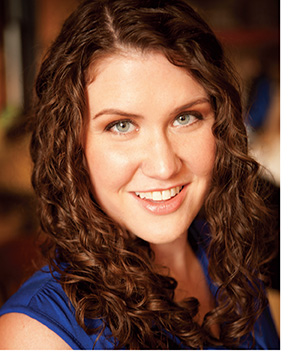 Sophia Bera
Sophia Bera
Gen Y Planning / Minneapolis, Minn.
Nothing about Sophia Bera’s career trajectory has been ordinary. In 2006, she was still an actress, doing many nights of an 18th century British play and waiting tables. But she wanted to buy a house after college. She started reading about personal finance. Her friends saw what she was doing and started asking her advice on money. She started taking CFP courses, met her first mentors and worked her way through three different planning firms. She found her sweet spot working with people in their 20s and 30s.
Finally, she decided to launch a virtual company in May 2013 exclusively for those young clients. She was terrified, but a former mentor asked, “What’s the worst thing that could happen?”
She now runs her firm while staying at sublets and friends’ houses all over the country. “I really like working remotely, and I really wanted to do my own thing.” She’s not doing planning as it’s long been defined, she says—something designed “for rich old white dudes 30 years ago.”
“I always say 80% of what I do has nothing to do with investments,” she says. “Traditionally, when we think about financial planning, we think about investing and retirement planning, two things that Gen Y doesn’t really care much about.”
Instead she’s fielding calls about people’s student debt, connecting people with CPAs and estate planning attorneys and no-load insurance, discussing student loan programs, stock options, buying or renting, tax planning, credit cards and Roth IRAs. She charges them an initial planning fee of about $2,000 to get started, which includes a financial plan. After that she charges a subscription fee of $99 to $199 a month. (There’s also a $499 one-off assessment.) She manages assets for about half her regular clients.
And she does it her way: “location independent,” conducting meetings via Skype and Google. She crashes with friends, sublets or stays with her parents when home in Minneapolis.
She also offers her clients unlimited e-mail support and a six-month check-in, because “people’s lives change every six months.”
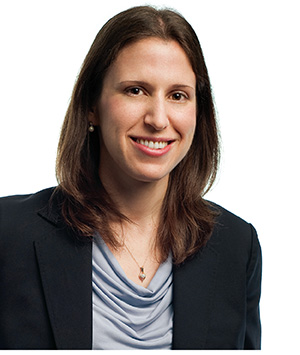 Meghan Pinchuk
Meghan Pinchuk
Morton Capital Management / Calabasas, Calif.
Meghan Pinchuk has known former pro baseball pitcher/financial advisory founder Lon Morton since she was 12 years old. He managed money for her grandfather and later hired Pinchuk’s father at his firm Morton Capital Management as COO in the 1990s. “He recruited me rather young,” she says. A great student without a clear direction (she started as an English major at UCLA), Pinchuk was encouraged by Morton to intern for him in college and see if she liked finance. She passed her CFP test while she was still an undergrad, graduated summa cum laude and hit the ground running, later on getting her CFA mark.
Nine years out of college, Pinchuk is now co-president of the firm, which has 700 to 800 client relationships (the average client size is $1.5 million to $2 million and the firm has almost $1.5 billion under management). Her rise came swiftly after Morton bought his firm back from a bank in 2013 and Pinchuk found herself promoted. Though Lon Morton is still CEO and has veto power, he has let Pinchuk and co-president Jeff Sarti drive strategy at the newly liberated firm, she says.
The firm is a manager of managers, allocating a larger-than-normal percentage of assets to alternatives—“anything from hedge funds, to private real estate deals, to private lending, oil and gas, health-care royalties.” As she was learning the ropes in planning, she said she wasn’t intimidated to ask questions, and she got involved filling out the dense investment documents for the firm’s alternative holdings. These allowed Pinchuk to learn about the contracts’ underlying mechanisms. She learned about risk and what you really pay for it. (“Sometimes I feel like I should have gone to law school.”)
She says that even though she doesn’t have many years of experience, “I think I get extra credit for 2008.”
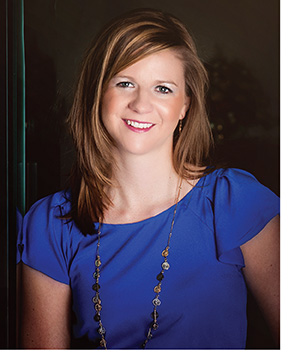 Laurie Belew
Laurie Belew
FYJ Financial / Midland, Texas
Laurie Belew felt like she had it made after she got out of college. She was leaving Southern Methodist University in Dallas with degrees in finance and public policy and had won a plum spot at a prestigious consulting firm working with big corporations, a firm that had been around almost 90 years and had 85,000 employees worldwide. “This company’s not going anywhere,” she thought.
The year was 2001 and the firm was Arthur Andersen. A year later, it was engulfed by l’affaire Enron and headed the way of the dodo. Still, she was 21 and giving executives at Fortune 500 companies advice. Not too shabby.
Her original career track had been law school, but she wasn’t that interested in her poli-sci courses. “When I was in college, my great-grandfather passed away,” she says, “and he had some fairly complex estate planning. So that was sort of my first insight into the role that a financial planner could play in helping individuals and families really put all of those different pieces of their financial life together. So that kind of stuck with me.” She further armed herself with an MBA and a master’s in financial planning.
Belew is now 35 and a partner at the Texas office of FJY Financial, which she joined as an associate advisor in 2006, a day after its three founders of the Virginia firm broke off from another firm. Since then, FJY has built up $450 million in assets with a staff of 12, working for some 250 households and asking no minimum in assets. The firm has made an effort to focus on the “young accumulator” who needs planning help. “We don’t expect those people to have millions of dollars yet.”
Besides providing wealth management and sitting on the firm’s investment committee, Belew has taken on the task of developing the firm’s internship program, and as a beacon to new planners, she took on the presidency of NextGen, the FPA’s arm for advisors 36 and under, in 2014.
She also does some strategic planning work for the firm, which has gotten big enough that there’s talk of a full-time COO coming on board. “I haven’t told you how many hats I’m wearing,” she says.
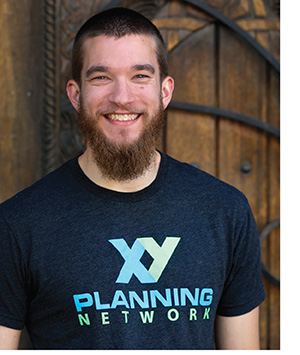 Alan Moore
Alan Moore
Serenity Financial Consulting / Bozeman, Mont.
Twenty-eight-year-old Alan Moore is a bit of a maverick. He started his career in 2011, but had a rocky start with a couple of firms, moving from his home state of Georgia to South Dakota to Wisconsin in just 16 months. “I was the world’s worst paraplanner,” he says. “It was just a really bad personality fit,” he says of the first two firms.
He found himself adrift. “I was sitting here without a job and I sat down and thought through: I always knew I wanted to start my own firm. I didn’t know I wanted to do it at 25.” He had $9,000 in the bank and no clients when he started Serenity Financial Consulting in Milwaukee in the summer of 2012. Though he’d never been a lead advisor, he saw an opportunity with oft-neglected and asset-less Gen Y clients nobody else wanted. “I built my firm with younger clients and created what was successful for me, in that it supported the lifestyle I wanted and provided enough income for me to do the things I wanted to do.” He even opened an office in Bozeman, Mont., where he had no clients. Now it’s a “pure virtual model,” he says.
Moore has only one client over 40. About 80% of his clients are small business owners—and the rest want to be. He acts as a business coach, helping his clients attract and retain customers, as well as doing their planning. Most of them pay him a flat quarterly or monthly fee for planning. While many advisory firms are more investment-centric, he says, that’s not his specialty. “A lot of my clients are younger and they don’t have assets. Or they have a ton of net worth built into a small business that we’re building out. Or they are digging out of student loan debt but they make a half a million dollars a year.”
Moore co-founded the XY Planning Network in April 2014 because he realized that a lot of junior advisors wanted to start a business the way he did, which he says is different from the way advisories were started 20 years ago. “We’re almost a year old,” he says of the network. “We have 61 advisory firms on our platform, many of which we have helped start from the ground up.” Moore’s next goal is to become even more virtual: to run the planning business out of his RV.
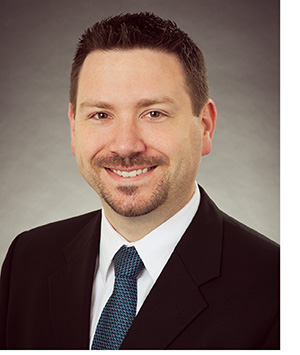 Dennis Moore
Dennis Moore
Quest Capital Management / Dallas, Texas
Dennis Moore grew up in Blanco, Texas, in the Hill Country west of Austin, the son of a business owner who did road construction for new developments. Moore fell in love with planning in college at Texas Tech in Lubbock, interning with Quest Capital in Dallas, and now at age 34 is the COO of the firm, which has just over $1 billion in assets at its broker-dealer/custodian Raymond James.
Many advisors love working with clients and hate the operations side of the planning game. But Moore, who also has an MBA from Texas Tech, found as he negotiated his career path that he actually liked operations. He started his COO job for Quest in 2011 after seven years with the firm.
Quest has 22 employees, including 12 CFPs in four planning teams, and five of those CFPs are owners. The firm, which started in 1987, is now on its second generation of ownership after the retirement of its founders. All firms have growing pains, and technology can be one of them, since advisors often find themselves spending as much time serving the software as the clients. One of Moore’s first big projects several years ago, and one that he says raised his profile at the firm, was to put together a proposal, on his own initiative, to streamline the firm’s software effort. “What I did is took some of the more back-office type of work, actual working in the software, getting things prepared, and took some of that off the individual teams.”
But every firm is different and the solutions will be, too. “I know the culture and I know the personalities and I know what will and won’t work.”
He’s always had an interest in business, he says, “whether running a business, owning my own business, just something about that just kind of appealed to me. … Most everybody wants to work with the clients and do that. So I take that business piece off of their plate.”
Moore is also the 2015 president of the Financial Planning Association of Dallas/Fort Worth.
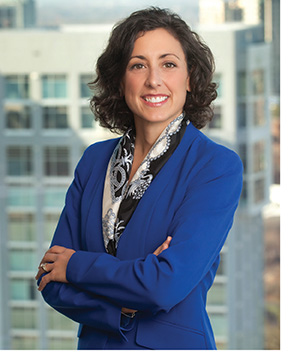 Lisa Brown
Lisa Brown
Brightworth / Atlanta, Georgia
Lisa Brown came from a rural town in Upstate New York where she says there were more cows than people. Both her parents were schoolteachers—an upper-class job in those blue collar/dairy farm environs—and she graduated second in a class of 92 students. When a high-school career counselor told her she had an aptitude for working in a business, Brown said, “I don’t want to work for the business, I want to own the business.”
It’s a long way from cows to helping blue-chip company execs with their GRATs and ILITs. But Brown graduated magna cum laude from Le Moyne College in Syracuse. In her senior year of college, she already had a job at the financial planning firm she’d been interning for during the summers, the Ayco Company (later bought by Goldman Sachs), which focused on those Fortune 500 execs and had an intensive tax preparation regime. Ayco’s training program led her to Georgia, where she got her MBA part-time at Georgia State, a CFP license (passed on her first try), a husband, three children … and eventually the career at Brightworth.
For the last 16 years, she’s been working mostly with the wealthy, and now works with clients with at least $1 million for Brightworth, which has $1.1 billion in assets. At 37, she’s the second youngest partner of 10 in the Atlanta firm (she became the youngest in 2010 after being there only five years).
She describes it as a place with a lot of type-A personalities and perfectionists. “I’m surrounded by a lot of smart people here.”
Most of her new clients now, almost half her base, are ex-Coca-Cola employees, and she’s become familiar with the company’s executives and their benefits plans. In fact, she has written two white papers on the subject of retiring from the soda giant (or receiving a severance package from it). She was recently featured in a New York Times article on the subject.
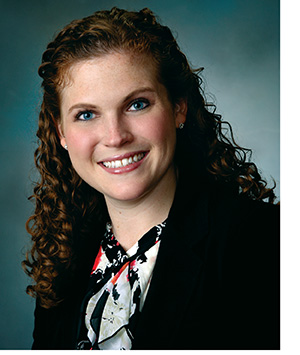 Amanda Lott
Amanda Lott
RegentAtlantic / Morristown, N.J.
When other kids were playing during the summer, Amanda Lott, at age 7, was taking lessons in the Japanese Kumon method of math study, prompted by her father, a Texas Instruments veteran. When she was 11, she found she was able to do 60 multiplication problems in 60 seconds during her class’s “Mad Minute.”
She saw the impact of her math talents at school, and they made her a ringer at Texas Tech. But she soon realized she liked working with people too much to go off to Wall Street or a hedge fund. Those choices were offputting enough that she even thought of psychology or nursing (but passed out at the sight of blood while volunteering at a hospital). Then she found personal financial planning in a course catalogue, and that led her to Deena Katz (who “lit her fire” for planning and later became her boss). It all clicked.
Just 10 years after graduating from high school, at age 28 she’s now handling 70 clients with about $165 million as a senior advisor at RegentAtlantic. (And this after graduating smack in the middle of the financial crisis.)
Behavior has always been as interesting to Lott as numbers—how people move in herds and regard money they’ve found differently from that they’ve spent. She notices how people have gravitated toward large-cap U.S. stocks for the past five years just because that’s what the neighbors are doing, “forgetting that 2010 was a lost decade for the U.S. market.”
Being able to communicate the ideas to clients is paramount, she says, because if you can’t, it’s all for naught. She recalls a client who implemented a $1 million GRAT in March 2009 and got a lot of money out of his estate to transfer gift- and estate-tax free. Another client converted a $5 million Roth and has seen $2 million in appreciation since 2010, income tax-free. “Seeing the positive results of clients who take your advice, that’s really satisfying,” she says.
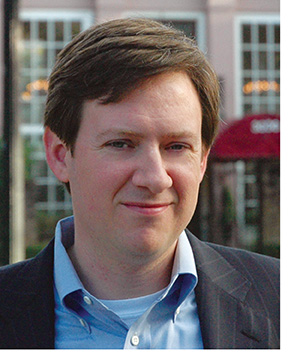 Jude Boudreaux
Jude Boudreaux
Upperline Financial Planning / New Orleans
Jude Boudreaux was raised on the bayou in Louisiana in a town of 2,000 people south of New Orleans, the son of a tire salesmen and ninth-generation scion of the town, with grandparents who owned shrimp boats. He remembers his parents one day arguing at a grocery store over a candy bar he wanted. “This is a dollar worth of happiness for your child,” said his mother. Those experiences shaped his ideas about money and happiness and failure.
Boudreaux went on to college at Loyola University on a full scholarship, impassioned about how people spend their money and what for. His own poverty problems chased him through college, though, all the way through his first job at Janus. He spent eight months in Denver, unhappy at the mutual fund company, and came home with credit card debt, which threatened both his checking account and financial career, he says. He dug out with smarts: His tech savvy and licenses made him valuable at MassMutual as director of training and technology and as a compliance officer.
About five years ago, he founded Upperline Financial with the philosophy that the planning industry is not structured to serve the people he grew up with (in its voracious gobbling of assets to manage). To him, the business is not about sophisticated investments or retirement plan projections, which is not hugely important yet to people in their 20s and 30s. It’s getting clients talking about their spending with a cash management system.
He worked out of his house at first and built up a website that reflected his personality and addressed concerns of locals. (Appearing high in local Google searches is key.) He largely simply recommends Vanguard funds—since his focus is on advice, not money management. That’s the future, he says. “As our industry has migrated toward asset management … we just keep excluding more and more people.”
His firm works on subscription for $100 a month for limited services, but most of his 84 clients are charged on an annual retainer based on income and net worth. He also teaches at his alma mater, Loyola, and he’s a past president of NextGen.
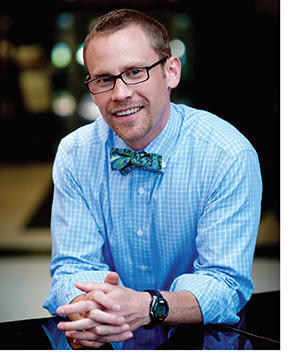 Tim Maurer
Tim Maurer
Buckingham Asset Management / Charleston, S.C.
Most people don’t know what financial planning is until they get into college. Tim Maurer knew he wanted to be one in the eighth grade when a kid across the street from his house had a three-car garage and said his dad was a financial advisor. “I cannot deny that my initial primary motivation to become a financial advisor was a superficial one.”
That changed when he actually confronted his career and realized the field was about people as much as money. After working his way through brokerages, banks and insurers, along the way he found the “personal” in personal finance.
“I did have those employers and sales managers who told me expressly … that I was supposed to be a certain type of person, I was supposed to dress a certain way, I was supposed to suppress who I was individually to mold myself to the picture that a large enough audience of wealthy people would consider the ideal financial advisor.”
At one point he remembers calling his wife distraught from a sales conference, saying, “I don’t know that the profession I signed up for actually exists.” But it did. He just hadn’t found it yet.
Maurer, now 39, eventually moved into the fee-only world. He recently went to work at Buckingham Asset Management in Baltimore after several years working at the Financial Consulate, and has become the director of personal finance for the BAM Alliance, a collective of 140 different advisory firms.
A few years ago, while working at his former firm, he became a radio co-host in Baltimore, and is also now a blogger, speaker and author (he recently relocated to Charleston, S.C.). One of his books is The Ultimate Financial Plan: Balancing Your Life and Money, which he co-wrote with Jim Stovall, and he’s working on a second book by himself.
“I’ve always enjoyed writing and creativity and speaking, but the media thing was quite accidental. The first time I went on television, I was a fill-in for somebody who got sick.” Planning is still his meat and potatoes, but he spends a lot of time education now. That ability to pursue diverse interests is also the mark of millennial clients, he believes.
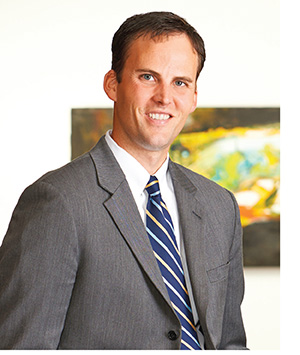 Eddie Kramer
Eddie Kramer
Abacus Planning Group / Columbia, S.C.
Eddie Kramer bought his first stocks when he was 11—Disney and Nike. He loved Air Jordans and the idea of owning part of Splash Mountain was exciting. He invested $2,600 after cashing his savings bond. (And the stocks went up!)
The son of a business owner in Fredericksburg, Texas, he worked in his father’s two Chevron stations from 7th grade to high school, running the cash register, cooking and occasionally tamping down dumpster trash. Kramer was on his way to a psychology degree or perhaps the seminary to be a pastor when a frat brother at Texas Tech University turned him on to family financial planning in his first semester: “a combination of psychology and money and investments and finance all together,” he was told. “I was sold pretty quickly.”
Now, 32, Kramer is a financial planner at Cheryl Holland’s firm Abacus Planning Group in Columbia, S.C., where he also runs the business development team and works with some 40 client families (the firm has $850 million in AUM). Abacus, he says, innovates in several ways. For one thing, it works with neuropsychologist James Grubman, who specializes on the topics of psychology, wealth and money. He helps the team learn how to actively listen with clients.
Kramer found that his passion was helping families going through transition, when family members die or when they buy or sell a business. “During this chaotic time, I’m the person they call first. That’s incredibly rewarding.”
“People get messed up in their heads,” he says. “All money does is turn the volume up on issues that families have. As a financial advisor, you have to understand the family system, not just the matriarch or patriarch that you have in your client.”








